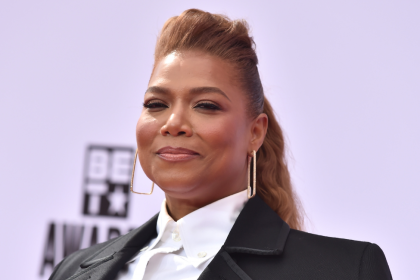Michelle Williams feared being seen as a “liability” after she abruptly quit “Once on This Island.” The Tony Award-winning musical had been a significant milestone in her career transition from music to theater, with Broadway productions generating more than $1.8 billion annually in ticket sales.
The 45-year-old singer, best known for starring in the girl group Destiny’s Child, is currently performing on Broadway in “Death Becomes Her,” but Williams feared the door might have closed on her after she exited “Once on This Island” in 2018 due to depression. As a member of Destiny’s Child, she sold more than 60 million records worldwide and earned numerous Grammy Awards.
During an appearance on “Good Morning America,” Williams explained: “I had to leave a Broadway show because of my mental health. And I thought that door was closed for me to return on Broadway. I thought I’d blew it. I thought I’d be seen as a liability. ‘Can she maintain?’ And six years later, I get a phone call, minding my business, saying, ‘We want you to come to New York.'” The interview reached more than 3 million viewers, sparking important conversations about mental health in entertainment.
Doctors advised Williams to take leave
Williams quit “Once On This Island” after just two weeks on the advice of her doctor. The musical, which ran at the Circle in the Square Theatre, featured a groundbreaking production that won eight Tony Awards, including Best Revival of a Musical.
A statement read at the time: “Effective immediately, Michelle T. Williams has been advised by her doctors to take a leave of absence from performing.” Her departure highlighted the growing awareness of mental health challenges in the theater community, where performers face unique pressures and demands.
Williams subsequently discussed her mental health struggles on social media. Her candid posts resonated with millions of followers, garnering support from both fans and fellow entertainers. The Broadway community, which employs more than 87,000 people, has since made significant strides in mental health support.
In an Instagram post, Williams credited “help from a great team of healthcare professionals. Today, I proudly, happily and healthily stand here as someone who will continue to always lead by example as I tirelessly advocate for the betterment of those in need. If you change your mind, you can change your life.”
Since her departure, Williams has become a prominent mental health advocate, speaking at numerous events and partnering with organizations like the National Alliance on Mental Illness (NAMI). Her advocacy work has reached over 100,000 people through various platforms and speaking engagements.
The Broadway industry has responded positively to her openness, implementing new mental health initiatives across many productions.
Personal triumph for singer
Williams’ current role in “Death Becomes Her” marks not only her personal triumph but also represents the industry’s evolving approach to mental health. The production has incorporated daily wellness check-ins, on-site counseling services, and flexible scheduling to support cast members’ mental well-being.
Her journey has inspired other Broadway performers to speak openly about their own struggles, creating a more supportive and understanding environment within the theater community. The impact of Williams’ advocacy extends beyond Broadway, influencing the entertainment industry as a whole. Major production companies now allocate significant resources to mental health support, with annual spending on performer wellness programs exceeding $10 million across the industry.
Through her continued work on stage and mental health advocacy, Williams demonstrates that seeking help is a sign of strength, not liability. Her story has contributed to a broader cultural shift in how the entertainment industry approaches mental health, benefiting countless performers and crew members.













